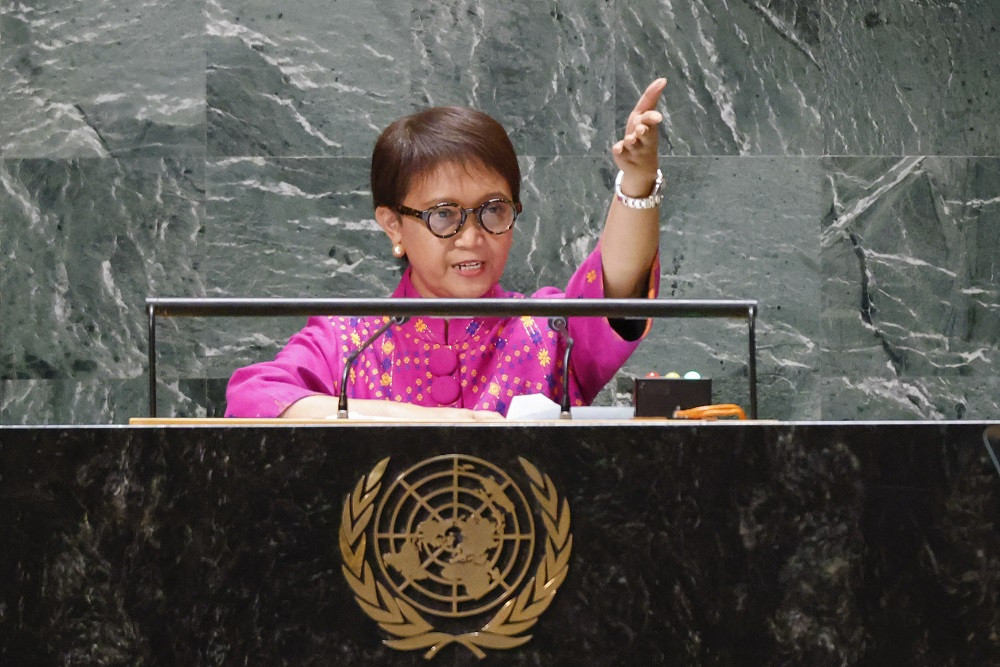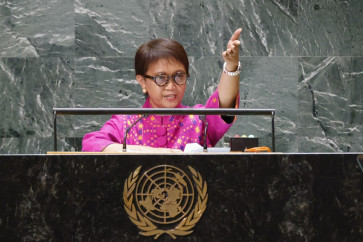Popular Reads
Top Results
Can't find what you're looking for?
View all search resultsPopular Reads
Top Results
Can't find what you're looking for?
View all search resultsHere’s what ASEAN nations pitched at the UNGA
As world leaders descended on the UN General Assembly, ASEAN's top representatives voiced their concerns about the right to inclusive development and adherence to the rule of law.
Change text size
Gift Premium Articles
to Anyone
L
ast week, the 78th United Nations General Assembly took on the major theme of reforming existing multilateral mechanisms so that nations can better confront various global challenges, ranging from the consequences of the war in Ukraine and geopolitical rivalries to the unabating climate crisis and the burden of development.
With the concerns of nations from the Global South resounding throughout the weeklong international debate, ASEAN’s top representatives lent their voices in hopes of bringing attention to the issues relevant to Southeast Asia.
Every year, world leaders descend on the neutral grounds of the UN headquarters in New York in the United States to spell out their priorities in the global multilateral context. This time, they will also likely offer up the themes of next year’s UN Summit of the Future.
UN Secretary-General Antonio Guterres said at the outset of the assembly that this year, it was either “reform or rupture”, as he noted how many international institutions of today – which were created after World War II – are no longer able to address contemporary issues and are instead becoming part of the problem.
Guterres labeled the institutions of the Bretton Woods system – the World Bank, the International Monetary Fund and the World Trade Organization, as well as the organs of the UN itself – as in need of reform.
Most prominent among them is the UN Security Council, where five permanent members – China, France, Russia, the United Kingdom and the US – continue to wield excessive power in determining global peace and security.
The need for reform is particularly important for Southeast Asia, which is among the world’s fastest growing regions, with a young population and having grappled in recent years with the precarious geopolitical landscape stemming from the intense rivalry between the US and China.


















